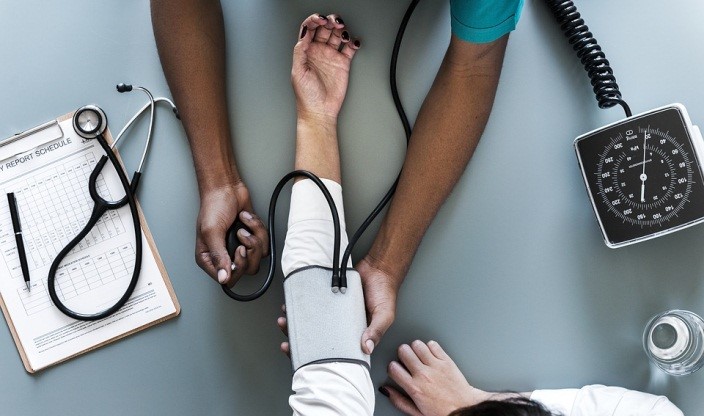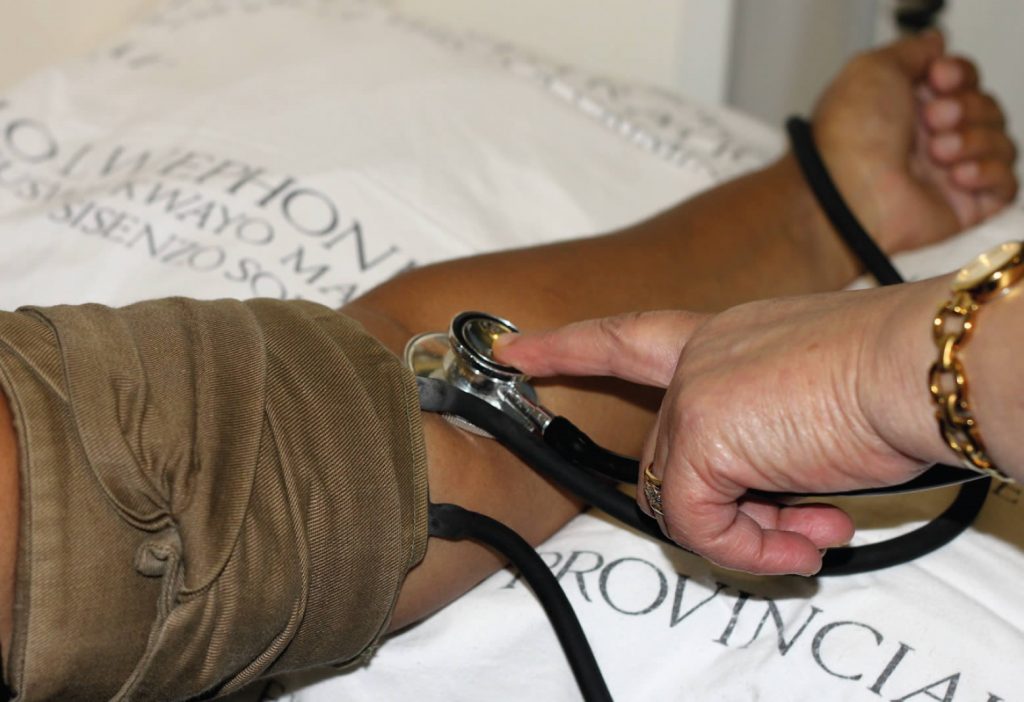
Blood pressure—it is sometimes a scary word. When people hear it, they immediately relate it with high blood or low blood pressure. The purpose of this article is to make you understand more about blood pressure and what you can do to boost your health and keep your blood pressure normal, so that you can live a healthy and enjoyable life. Blood pressure is not something that you should be wary about, nor should it be something that brings dread. Yes, it truly can be associated with different kinds of ailments, but take heart—getting the right knowledge about it is important as it could save your life! Do you have high BP? Don’t worry, you are not alone. There are many people who do, even if they don’t know it.
Understanding Blood Pressure
Blood pressure reading involves the systolic and the diastolic BP. Systolic BP number is the pressure on the blood vessels that are caused by the blood being pushed through the arteries from the heart to all areas of your body. On the other hand, the diastolic BP number is the amount of pressure that is in the arteries as the heart rests. IN between beats, the heart obtains oxygen and fills with blood.
A normal systolic BP is a reading that is below 120. When it is from 120 to 129, it is elevated. When the reading is from 130 to 139, there is stage 1 hypertension. A reading of more than 140 indicates stage 2 hypertension. When the reading reaches 180, the body is experiencing a hypertensive crisis and the patient should seek emergency care.
The normal diastolic BO is something that is lower than 80. However, if the systolic BP reading is from 120 to 129, the BP is still elevated even if the diastolic BO is below 80. A reading of 80 to 89 indicates stage 1 hypertension and a reading of 90 or more is stage 2. When the diastolic BP reading reaches more than 120, it is also considered a hypertensive crisis.
Syhygmomanometer
Pressure in your blood is measured using a sphygmomanometer. It can be manual or it can be digital. If you have normal BP, you should have it checked annually. If you have an elevated BP, a doctor may require you to monitor it every three to six months. Moreover, you may be asked to make lifestyle changes such as better nutrition and more exercise. When people have stage 1 or stage 2 medications, they will likely be given medication as well as stricter instructions on lifestyle change. A monthly or bi – monthly check – up may also be required. If you have a BP monitor at home, it is also good to know your numbers. You may not always feel symptoms of elevated or plunging BP, but when you monitor it, you can have an idea on what you need to do to take care of yourself.
Strained Arteries
Why do you need to know about blood pressure? It is important to know because if your BP is high, then you have a high risk of suffering from health problems.
A high blood pressure means that there is added strain or pressure on your hear and on your arteries; when this goes on for a long time, the arteries will be thicker, blocked, less flexible, and narrower because of the pressure.
Strained arteries are weak and when they get fully blocked, a person can suffer a stroke, heart attack or kidney problem. A person with consistently high BO is diagnosed with hypertension or high blood pressure and given medical treatments to avoid disastrous effects. High BP is a silent killer. There aren’t usually any symptoms and there are no warning signs—that is why it is best to do all that you can to maintain a healthy lifestyle and stay away from the risk.
Family History
There are particular traits and lifestyle choices made by people that can put them at risk such as obesity, smoking, alcohol drinking, stressful conditions, sedentary lifestyle, etc. Family history and genetics are also factors as well as some medication. When high blood pressure conditions are not addressed, blood pressure can skyrocket until it is too late to treat. Now that you know the dangers of having high BP, you should know that there are ways you can lower the blood pressure and avoid straining your heart and arteries. Remember the saying, “an ounce of prevention is better than a pound of cure”.
Maintaining Good Blood Pressure without Using Medication

People who have been diagnosed with stage 1 or stage 2 hypertension are given medication that they have to take for life in order to maintain good BP levels. Taking your medications can be a cause for worry to some. Imagine, they have to spend money on meds the rest of their life and they have to watch everything they do and eat. They are also constantly worried that they can suffer a heart attack or stroke without warning. Thinking about this, isn’t it a good idea to bring your numbers down so that you don’t have to always live your life constantly in fear and tied down to medications?
Well, it is time to change your lifestyle! That is the most essential key in lowering and keeping your blood pressure numbers at the right amount. By changing your lifestyle, you can manage your BP well and avoid, reduce or delay medication. Here are some simple changes you can apply in your life:
Lose the weight
You need to manage your weight. When your weight increases, your BP will increase as well. You may even suffer from sleep apnea. Did you know that you can reduce your BP by 1 mmHg with every kilogram you lose in weight? Watching your waist is also important—when there is -too much weight on your belly, you have a high risk of getting higher BP. Men’s waists should measure less than 40 inches. If it reaches more than that, they are at great risk. On the other hand, women should have waist measurements of less than 35 inches.
Eat healthy
This goes without saying. Eat the right kinds of food and avoid the foods that aggravate your condition. Monitor your food intake. Have adequate amounts of vegetables, fruits, whole grains and dairy. Avoid cholesterol rich foods and saturated fats. Boost your potassium levels as it lowers the bad effects on sodium on your BP. Stay away from too much sodium. The daily limit is less than 2,300 milligrams, but it is best if you can consume less than 1,500 mg. Always read the labels of the food you eat.
Get moving
Exercise and have daily physical activity. It can be as simple as walking or jogging. Studies show that walking for 15 to 20 minutes a day can reduce your BP by as much as 5 to 8 mmHg. Be consistently moving so you can avoid elevated BPs. Now if you already have hypertension, regular exercise will help lower your BP levels. You can do aerobics, swimming or dancing. Strength training is also a good way to lower BP levels.
Limit or lessen your alcohol intake.
Do not drink unless you need to and limit it to one a dat. This way you can lower your BP by 4 mmHg. To give you a picture, one drink means 5 oz of wine or 12 oz of beer. When you drink more alcohol, you raise your BP and you also reduce the protective effects of BP meds.
Stop smoking
Puffing a smoke can increase your BP the whole time you are smoking and even after you are done. Not only will you decrease the risk of heart problems when you stop smoking, you will also boost your overall health. You don’t have to die young, quit smoking today.
These are five simple yet ideal lifestyle changes you can apply to your life immediately. But do you know that one big factor that you can also address is stress? Yes. Experiencing chronic stress contributes to the elevation of your BP.
Today’s world is full of busyness and pressure—but you should know when to take a step back. It is important for you to keep your stress levels in check. Many people cope with stress by drinking, smoking or unhealthy eating—all of which are risk factors that further elevate blood pressure.
Take the time to recognize the things and situations that causes you to feel anxious. When you know what causes you to stress out, you can address them and eliminate them from your life. You may not be able to eliminate all the stressors in your life, but you can find healthy ways to handle them.
Make sure to learn stress reduction techniques like deep breathing, progressive muscle relaxation, and meditation, among others to help you manage and overcome stress. You can also learn to change your expectations and avoid triggers. Allow yourself to relax and take a break. Life is too short to live stress out. Value your health. Value your life, you only have one!

 I love to write medical education books. My books are written for everyone in an easy to read and understandable style.
I love to write medical education books. My books are written for everyone in an easy to read and understandable style.